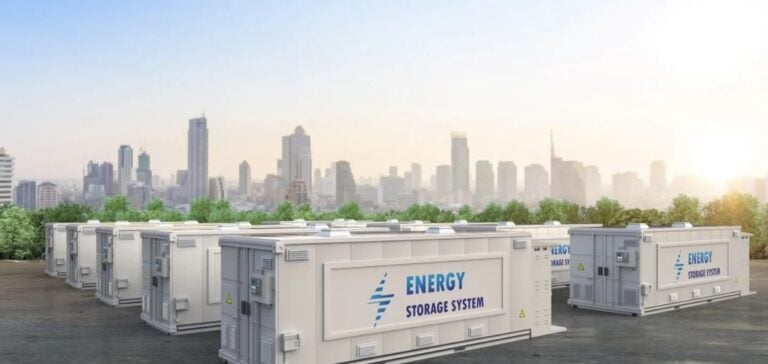Blue Whale Energy, a virtual power plant developer based in Southeast Asia, has announced a partnership with UNIGRID, a company specialised in sodium-ion batteries, to launch behind-the-meter energy storage systems designed for dense urban environments. The initiative aims to address solar integration challenges in commercial and industrial zones restricted by space limitations.
A solution adapted to urban constraints
As solar installation rates continue to rise in the region, the electricity grid is increasingly challenged by intermittent generation. Storage enables better balancing of solar production, but conventional lithium-ion systems face technical and regulatory barriers in urban areas. These batteries require secured spaces, active thermal management, and costly safety infrastructure.
To bypass these constraints, Blue Whale Energy plans to install battery modules directly beneath photovoltaic panels. This approach, made possible by UNIGRID’s sodium-ion technology, enables rooftop integration without the need for complex engineering solutions. The system requires no active cooling, lowers fire risk, and adapts to temperature fluctuations.
Initial deployment and regional outlook
Blue Whale Energy is targeting an initial 8 MWh deployment by the end of 2025. The installations will focus exclusively on commercial and industrial rooftops in urban areas with limited available space. This strategy allows each equipped rooftop to become a distributed energy asset connected to the grid through a virtual power plant.
Regional expansion is scheduled to begin in 2026, with a progressive rollout across other Southeast Asian markets. According to Gabriel Lim, Founder and Chief Executive Officer of Blue Whale Energy, the collaboration opens access to previously unreachable market segments: “We can now deploy storage where energy is actually consumed.”
Darren H. S. Tan, Chief Executive Officer of UNIGRID Battery, stated that this approach expands the potential use cases for urban storage: “It creates new opportunities in a segment of the BESS market that remains largely unaddressed in major cities.”






















